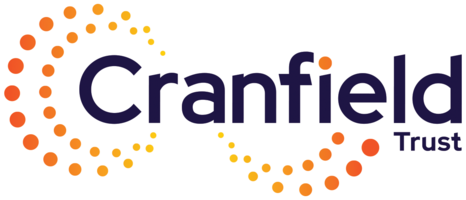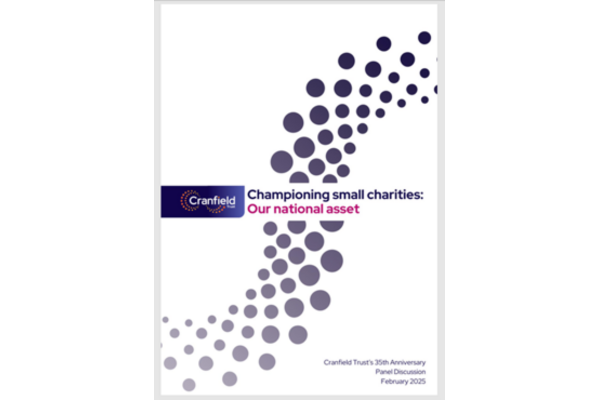Running a charity brings unique challenges, and it can sometimes feel like a lonely place at the top. You're balancing funding pressures, team dynamics, and service delivery whilst staying true to your mission. Mentoring can be a valuable source of support during these challenges, but it's important to understand what it actually involves.
At Cranfield Trust, we've spent years developing our mentoring programme and now work with over 700 volunteer mentors who support charity leaders across the UK. We've found that understanding what mentoring truly offers helps ensure it's the right fit for your needs.
This article will explore what mentoring actually involves and what you can expect from the Cranfield Trust collaborative mentorship approach. We'll also share views and insights from our mentors about their experiences and help you decide whether mentoring suits your current situation.
What actually is mentoring?
Think of mentoring as having a skilled thinking partner. Your mentor won't solve your problems for you. Instead, they'll ask questions that help you see situations differently, share fresh perspectives from their own experience, and help you find your own solutions.
"The most challenging thing for me, but probably the most important thing, is just listening and trying to hold back from steering the conversation too much," explains Karen Weaver, a retired charity CEO who recently became a Cranfield Trust mentor. "It's about giving people the space to talk through what they need to."
This might sound simple, but it's remarkably powerful. When you're caught up in day-to-day pressures, having dedicated time to step back and think with someone who brings different experiences can unlock insights you didn't know you had.
Your mentor acts as a sounding board, helping you explore challenges from different angles. They'll share relevant tools, frameworks, and perspectives from their own leadership journey. But the direction of your conversations and the decisions you make remain entirely yours.
The Cranfield Trust approach
Our mentoring approach combines professional development through guided reflection with practical support. Your mentor brings leadership experience and asks questions that help you think differently. They'll also share perspectives from their own background and, when relevant, introduce practical tools that might help with your specific challenges.
"Sometimes you really have to hold back from explaining your own experiences and pointing the mentee down a certain path that might not be right for them," notes Muriel Tersago, an experienced mentor who now works as an Associate Regional Manager with Cranfield Trust. "But there's also value in sharing different perspectives and specific tools when they're genuinely helpful."
As the mentee, you remain in control. Your mentor facilitates your thinking and offers their perspective as another lens through which to view your challenges, rather than directing you towards predetermined solutions.
Our mentoring programme puts you in the driving seat. Here's how it works:
• Chemistry calls: Every mentoring relationship starts with an informal conversation. This helps ensure you feel comfortable with your matched mentor.
• Your agenda: While mentors guide sessions with thoughtful questions, different perspectives, and relevant tools, you decide what to discuss.
• Regular sessions: Typically, you'll meet monthly for six to eight sessions of about an hour each. This rhythm gives you time to reflect and try new approaches between conversations.
• Safe space: Everything discussed remains confidential. This creates room for honest exploration of challenges you might not feel able to discuss elsewhere.
The process isn't about quick fixes. It's about developing your thinking and confidence to tackle both current and future challenges more effectively, whilst gaining fresh perspectives and practical approaches along the way.
What our mentors say
Our mentors bring diverse backgrounds but share common insights about what makes mentoring valuable.
For Karen Weaver, mentoring continues a career spent supporting other charities:
"It's an opportunity to share your skills and experience and help someone become more effective in their role. There's a tendency in the charity sector for senior leaders to always focus on tackling the immediate pressures of service delivery over and above their own needs for support."
She emphasises the importance of creating space for reflection whilst also sharing knowledge:
"The fact that Cranfield Trust is free and you're accessing support from people who've got really useful experience, I think that's so valuable. If I can make a difference to just a handful of people and their charities, and make those places a better place to work, then those charitable causes will be met more effectively as well."
Muriel Tersago values both the unique relationship mentoring creates and the practical exchange it enables:
"You're connecting with people on a deeper level. You develop quite unique relationships that you wouldn't develop in other walks of life. And through that connection, you can share perspectives and tools that genuinely help them move forward."
Both mentors highlight that mentoring works best when mentees come ready to explore and reflect, whilst remaining open to different perspectives and new approaches. It's this combination of self-discovery and external insight that makes the relationship productive.
Is mentoring right for you?
Consider these questions:
- Are you willing to explore challenges whilst remaining open to different perspectives
- Can you commit to regular monthly sessions?
- Are you open to examining your own thinking and trying new approaches?
- Do you value having a confidential space to work through professional challenges?
- Are you prepared to lead the agenda whilst being receptive to fresh insights and practical tools?
If you answered yes to most of these, mentoring could be valuable for you. If you're looking for specific technical training, structured skill development, or a prescribed programme with clear deliverables, a different type of support might better serve your needs.
Taking the next step
Cranfield Trust provides free mentoring to charity leaders across the UK. The majority of our mentors come from the commercial sector, but they are all experienced leaders willing to support the charity sector. We carefully match mentors and mentees based on your needs.
The process begins with a simple application where you outline your current challenges and what you hope to gain from mentoring. We'll then match you with a suitable mentor, with whom you will have a chemistry meeting, after which you can decide if you want to continue with the sessions.
Remember, mentoring isn't about someone else having all the answers. It's about combining your own insights with fresh perspectives and practical tools to find the best way forward. For charity leaders navigating complex challenges, that combination of guided self-discovery and external wisdom can be exactly what's needed.
If mentoring sounds right for you, visit our mentoring pageto learn more and apply. Your journey towards clearer thinking and greater confidence could start with a single conversation.








